FREE UK Delivery £25+
FREE UK Delivery £25+
Blog
about us
account

Vegan Omega 3: The Ultimate Guide for Vegans & Vegetarians - Sources, Benefits & Plenty More
December 11, 2019 14 min read 1 Comment
This is the ultimate guide to the world of Omega 3 fatty acids for those who are vegan or vegetarian, but also for flexitarians, reducatarians, pescatarians, omnivores and anyone who wants to learn about clean, sustainable sources of Omega-3… we've got you covered!
What Is Omega 3 And What Is It Good For?
Omega-3 is an essential nutrient, which means that the human body can’t make it; it must be obtained through foods. (1)
Omegas are known as fatty acids which are the basic building blocks of fats. Omega-3 in particular has a range of unique benefits and plays many roles throughout the body including in:
- Cardiovascular health
- Brain function and development
- Development of healthy eyes
- Foetal development
- Reduction in risk factors for heart disease
- Reduction of inflammation (2)
There are several different types of Omega 3 fatty acids, but you only need to know about the three main ones:
- Alpha linolenic acid (ALA)
- Eicosapentaenoic acid (EPA)
- Docosahexaenoic acid (DHA)
We'll get into the details about these later.
SUMMARY: Omega-3 fatty acids are essential and play important roles throughout the body including for heart, brain, eye and prenatal health as well as in fighting inflammation.
How Can Vegans & Vegetarians Get Omega 3 Fatty Acids?
Whether you’re a vegan, vegetarian or meat-eater, consuming enough fatty acids can be difficult. This is mainly because of the three types mentioned above, only ALA is easy to get.
Unfortunately, ALA is also the least useful of the three fatty acids because the body can’t use it directly. It needs to be converted into the more useful forms of EPA and DHA, which is where all the great benefits come from.
However, EPA and DHA are only found in marine sources such as oily fish.
For vegans, vegetarians or anyone who doesn't eat much oily fish, it’s important to understand that most plant-based sources of Omega-3, such as walnuts, flaxseeds, chia seeds, hemp seeds or soybeans, come in the form of ALA and contain almost no DHA or EPA. (3)
While it's true that the human body can convert ALA into EPA and DHA, it does a pretty terrible job at this. In fact, only 5-20% of the ALA fatty acid gets converted into EPA and a tiny 0.5-4% into DHA.
This means that you’d need to eat a massive 6,250 mg of ALA every day to get the minimum 250 mg of DHA you need!
That's a lot of walnuts (around 70 to be exact)!

SUMMARY: Most plant-based sources of Omega 3 fatty acids come in the form of ALA, which is least useful form. EPA and DHA are the ones you really need, but these are only found in marine sources which can be hard to get for people who don't eat much oily fish.
EPA and DHA
EPA and DHA Omega 3 fatty acids (sometimes called the marine fatty acids) are a different story altogether. These are long-chain fatty acids are more bioavailable which means that they’re easily absorbed and immediately available for your body to use.
Omega-3 DHA has been studied more rigorously, which is why we know so much about its anti-inflammatory benefits, its role in supporting cell membranes and its ability to support proper brain and eye function (4, 5). It also plays a crucial role in foetal development, so it's especially important for pregnant women.
Omega-3 EPA is important too. EPA may be better at reducing inflammation (6) and at aiding recovery from brain trauma (7), but it’s probably best to avoid getting too caught up in the differences between DHA and EPA. Your body can convert DHA to EPA when needed, and they both fulfil very similar functions.
Now as we already mentioned, DHA and EPA have commonly been sourced from fatty fish like salmon or mackerel, but you might be surprised to learn that just like us, fish can’t make their own Omega-3.
They get it from certain species of marine algae that they eat. Basically, the Omega-3 rich algae in the sea gets eaten by small fish and crustaceans like krill, which are then eaten by bigger fish like salmon.
The Omega-3 accumulates in the bigger fish, which is why fish is thought of as a good source of Omega 3 fatty acids.
So, coming back to the original question of how vegans and vegetarians can get DHA and EPA, the answer lies in nature itself. We can get it from the same natural source as the fish... marine algae.
Read on to find out why algae is awesome and how to get it in your diet.
SUMMARY: EPA and DHA are responsible for most of the benefits of Omega-3 and are usually sourced from fish. However, fish don't make their own EPA/DHA and get it from the algae in their diet. We can use algae as a direct source of DHA and EPA.
What Are The Health Benefits of Omega-3 for Vegans and Vegetarians?
Benefits for Inflammation and Heart Disease

Omega 3 fatty acids are one of the only chemical compounds that can help decrease the inflammation associated with conditions like metabolic syndrome (8), kidney failure (9) and atherosclerosis (10, 11).
Just to be clear, we’re not saying that Omega-3 is a miracle cure-all - or that it can of single-handedly reverse heart disease - but we do know that Omega-3 helps to reduce inflammation and that there is a definite link between inflammation and chronic diseases.
Studies have shown Omega-3 may help to:
- Regulate blood pressure and produce more white blood cells (12, 13)
- Decrease the inflammation associated with conditions like metabolic syndrome (14), kidney failure (15) and atherosclerosis (heart disease) (16, 17)
- Lower your blood pressure (18)
- Reduce triglyceride (cholesterol) levels in your bloodstream (19)
- Reduce the incidence of arrhythmia or irregular heartbeats
You can click here to learn more about Omega-3 and inflammation.
SUMMARY: Many common diseases today are caused by inflammation within the body. The anti-inflammatory effects of Omega-3 may help to promote a healthy heart by lowering blood pressure and reducing cholesterol levels in the bloodstream.
Benefits for the Adult Brain

Omega-3 fats are known to improve brain function by nourishing important cells but studies published in Current Neuropharmacology also show that DHA and EPA Omega-3s may also help to preserve brain plasticity, and prevent the neuron decay that’s normally associated with age-related memory loss (11).
Omega-3 DHA is a major structural component of the brain and studies have shown that it may help to:
- Fight age-related mental decline and Alzheimer’s disease (20) (21) (22)
- Improve brain function in those with mild brain conditions (23) (24)
- Increase brain function in older adults with age-related cognitive decline (25)
- Reduce depressive symptoms in those with depression, with effects comparable to antidepressants (26)
SUMMARY: Docosahexanoic acid (DHA) is a major structural component of the brain and studies have shown that it helps to preserve brain plasticity and prevent neuron decay.
Benefits for Pregnancy, Babies and Children

When it comes to pregnancy, evidence suggests that eating a diet high in Omega-3 fatty acids may be directly correlated to better outcomes.
A recent meta-analysis of over 70 different studies found that Omega-3 supplementation could reduce the risk of premature birth (27) and several research papers also point out that Omega-3 fatty acids are also critical for the development of your baby’s brain (28, 29).
Our brains are approximately 60% fat and Omega-3 DHA is one of the main structural components. In fact, Omega-3 DHA is the only long-chain fatty acid that can provide structure for important brain-cell membranes, and improve nervous function in the brain.
It’s important to know that a baby's brain matures rapidly from conception until the age of two (the first 1,000 days of life) and that this process is supported by the accumulation of Omega-3 DHA in the brain.
Since all of this Omega-3 is transferred from the mother via the placenta during pregnancy and through breast milk once the baby starts feeding, it’s critically important that mothers get enough Omega-3 from a clean and bioavailable source like algae.
Studies have shown Omega-3 may help to:
- Reduce the risk of premature birth (27)
- Helps the development of baby’s brain (28, 29)
- Supports the development of baby’s eyes (30)
- Aid concentration, focus and recall in young children (31)
- Helps to regulate mood and reduce depression in young children (32)
Learn more about Omega-3 and Pregnancy here.
SUMMARY: The most rapid development of a baby's brain occurs from conception until 24 months, so it's important for the mother to get enough Omega-3 DHA during this time.
Benefits for Eye Health

When they’re not busy nourishing your brain and your heart, Omega-3 fatty acids also help to maintain healthy vision. In fact, Omega-3 DHA serves as a major structural component in your eyes’ retinas (8)
If we don’t get enough Omega-3, our bodies may struggle to construct photoreceptor cells, and we may start to experience problems with our vision (9).
Studies have shown Omega-3 helps to:
- Regulate eye pressure (33)
- Decrease the risk of glaucoma (33)
- Reduce chances of developing conditions like macular degeneration or dry eye (10)
Studies have also suggested that Omega-3 has benefits for easing joint pain, maintaining healthy hair, skin and nails and plenty more.
SUMMARY: Omega-3 DHA is a major structural component of the retina. Consumption of DHA has been shown to help maintain healthy eyes and fight degenerative eye conditions.
That's quite an array of benefits, but it's important to note that it’s DHA alone that is responsible for most of these benefits, particularly for eye, brain and prenatal health.
Vegan Omega-3 Sources: What Vegan Foods Contain Omega-3?
There are only a few sources of vegan Omega-3: nuts, seeds or algae.
But before you make a decision, it’s important to remind you about the differences.
Omega-3 DHA is the real powerhouse that provides the major benefits offered by Omega-3 and this is only contained in marine sources.
Nuts and seeds are rich in ALA, which as we know, converts poorly into DHA. Our body can also produce EPA if we have enough DHA through a process called retro-conversion.
So the real benefit for our health comes from getting enough DHA, which, if you follow a vegetarian or vegan diet, you can only get from algal oil.
While you could try and incorporate algae into your diet, supplements are the most cost-effective, readily available and reliable source of algae-based Omega-3.
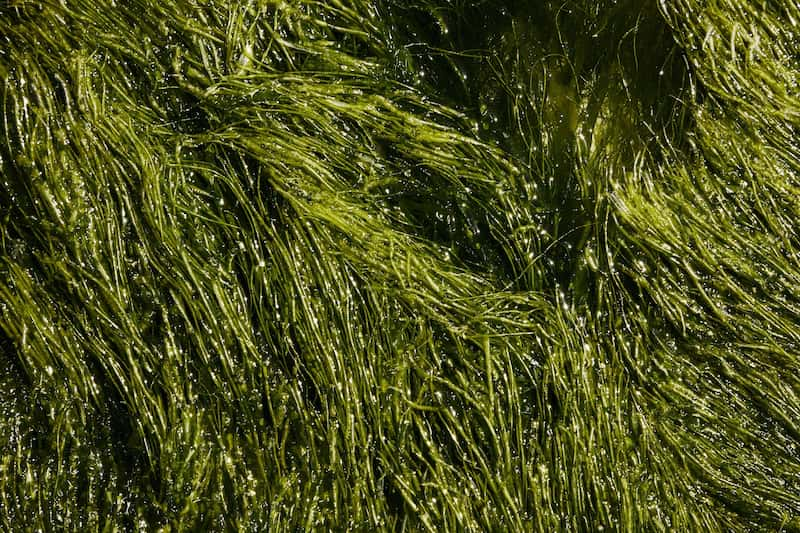
SUMMARY: The only options for vegan Omega 3 are nuts, seeds or algae. Of these three, only algae contains EPA and DHA.
Is Algae The Best Source of Omega-3 for Vegans and Vegetarians?
We strongly believe that algae are the best possible source of Omega-3 fatty acids (and not just for vegans). The DHA found in algae is clean, easy-to-digest and very bioavailable. It’s nature's original source!
It’s also bundled with many other beneficial compounds, which have been shown to reduce serum cholesterol levels (34).
Algae-based supplements are also environmentally friendly, ethical and sustainable, which means that you don’t have to worry about them having a devastating environmental impact on our planet, unlike fish oils.
Best of all, algae are grown in controlled environments, which means there’s no risk of accidental pollution from mercury, dioxins, PCBs, micro-plastics or other pollutants commonly found in our oceans.
The sad truth is that our oceans are more polluted now than they have ever been and unfortunately, these harmful toxins accumulate in the bodies of marine wildlife - especially larger fish.
Many people eat these oily fish and the fish oils made from them to get their Omega-3, not knowing the long-term damage that the toxins may be during to their health.
To read more about Algae vs Fish Oils, check out this blog.
SUMMARY: Algae is the best source of Omega-3. Not only does it contain DHA and EPA (rather than ALA), but it's 100% vegan, doesn't contain heavy metals or contaminants and doesn't cause environmental devastation like the industrial fishing industry.
Comparison of Omega-3 Sources
To summarise the differences between the three most common sources of Omega-3 here is a handy comparison:
|
|
|
|
|
Source of Omega 3 DHA and EPA
|
✓ | ✗ | ✓ |
|
Suitable for vegetarians and vegans
|
✗ | ✓ | ✓ |
|
No fishy burps or aftertaste
|
✗ | ✓ | ✓ |
|
Contaminant and toxin free
|
✗ | ✓ | ✓ |
|
Heavy metal free
|
✗ | ✓ | ✓ |
|
Allergen free
|
✗ | ✗ | ✓ |
|
Sustainable & environmentally-friendly
|
✗ | ✓ | ✓ |
|
Suitable for pregnant women
|
✗ | ✗ | ✓ |
As we can see, algae ticks all the boxes for an ideal source.
How Much Omega-3 Do Vegetarians and Vegans Need?
To help you make your own informed decisions about the amount of fatty acids you should be consuming, it’s essential first to understand a little about Omega-3 and Omega-6 ratios.
Omega-6 is another type of fatty acid that has a similar chemical structure to Omega-3. The balance of these two fatty acids is often overlooked when discussing Omega-3 intake, so let's touch on this briefly.
The Importance of Omega-3 to 6 Ratios
Ratios are a rough guide to the way Omega fats should be balanced in your diet. They’re not supposed to be precise, and it would be a waste of time to get too hung up on trying to calibrate your intake perfectly.
According to experts, humans evolved on a diet with a 1:1 ratio of Omega-3 and -6 fats. Unfortunately, our modern diets are more likely to contain a 1:16 or 1:20 ratio of these essential nutrients, which means that many of us consume up to twenty times more the amount of Omega-6 fatty acids than the human body has evolved to support.
While it is important to have some Omega-6 in the diet, this ratio is way out of balance and we are generally eating far too much Omega-6.
This is important, as having too much Omega-6 can affect how well your body absorbs Omega-3. It also has an inflammatory effect on the body, so it's important to get this balance as close as possible to 1:1.
In general, the best way to redress this balance is to reduce your Omega-6 intake and add more high-quality Omega-3. Adding more Omega-3 fats will naturally decrease the creation of inflammatory eicosanoids whilst also ensuring that your body has enough of the EPA and DHA it needs.
SUMMARY: The ideal ratio of Omega-3 to 6 is 1:1, but in reality, most people have a ratio of 1:20 (that's 20 times the ideal amount of Omega-6!). This imbalance of Omega-3 and 6 has negative effects. We should aim to get as close to the 1:1 ratio as possible by adding a good quality source of Omega-3 DHA/EPA and reducing our intake of Omega-6.
How Much Omega-3 Do You Need Per Day?
Exact guidelines for Omega-3 fatty acids intake vary by country, so there isn’t a universally accepted recommended daily allowance (RDA) or nutrient reference value (NRV).
The European Food Safety Authority (EFSA) guidelines recommend that you eat approximately 250 mg per day of the long-chain fatty acids EPA and DHA. (35).
Daily Adequate Intake Ranges for Omega-3 Fatty Acids (EFSA Guidelines):
|
Age (years) |
ALA |
DHA/EPA |
|
0 - 1 |
0.5% of energy intake |
100 mg |
|
2 - 3 |
0.5% of energy intake |
250 mg |
|
4 - 6 |
0.5% of energy intake |
250 mg |
|
7 - 10 |
0.5% of energy intake |
250 mg |
|
11 - 14 |
0.5% of energy intake |
250 mg |
|
15 - 17 |
0.5% of energy intake |
250 mg |
|
18+ |
0.5% of energy intake |
250 mg (plus an additional 200 mg of DHA for pregnant or lactating women) |
Based on various recommendations, every adult (and child over 24 months) should be consuming at least 250 mg of DHA per day. However, in our opinion, 400 mg of DHA is probably a safer bet, particularly if you are keen to safeguard your body’s biochemistry and protect against inflammatory conditions.
In addition to this, EFSA recommends an additional 200 mg of DHA for pregnant and breastfeeding women.
Unfortunately, very few people manage to meet these requirements. Various studies show that the average western male consumes less than 0.05mg of DHA daily (36), and the rate may be even lower for women.
A report published in “Progress in Lipid Research” also suggests that only 2% of the population actually get enough DHA and EPA from their diet (37), which is a worrying statistic indeed!
The picture may be worse for vegans too. According to a large study with over 14,222 participants, non fish-eaters (including vegans and people who just don’t like oily fish) tend to consume 52-80% less DHA and EPA than their omnivorous (or pescatarian) counterparts, probably because they’re not sure where else to obtain these vital nutrients, or how much they’re supposed to get (34).
Many vegetarians and vegans opt for readily available vegan Omega-3-6-9 supplements. However, these supplements can be problematic, as they add more Omega-6 which as we’ve learnt is already too high in the modern diet.
To learn more, read our blog on reasons to avoid Omega-3-6-9 supplements.
SUMMARY: The European Food Safety Authority recommend that adults and children over 24 months consume at least 250 mg of DHA/EPA per day. An additional 200 mg of DHA is recommended for pregnant or lactating women.
What are the Downsides to Algae-Based Supplements?
So, we’ve established that algae is an excellent source of clean, long-chain, plant based Omega-3, but we often hear people saying that supplements are a bad idea, or that taking a capsule is in some way inferior to getting Omega-3 from food.
However, issues with bioavailability (and how difficult it is to get algae into your diet) means that a good supplement is almost always a great option.
One downside to algae-based supplements is that the most common and stable strains of micro-algae can’t produce much EPA, which means that algae-based supplements tend to focus on DHA.
The good news is that that isn't a problem, as your body is pretty good at retro-converting DHA to make its own EPA. Coupled with the fact that you'll get some EPA from the ALA in your diet anyway, a good DHA algae supplement plus eating enough nuts and seeds should provide you with all the fatty acids that your body needs.
Here at Omvits, we've developed an awesome algae-based Omega-3 supplement. Since Omega DHA is the star of the show, our main supplement focuses on providing your body with the recommended 250 - 400 mg of daily in DHA form, but for people that are looking for EPA, we also offer an EPA and DHA algae supplement that’s healthy, sustainable and 100% vegan: perfect for people that are looking for a clean and effective way to up their fatty acid intake.
While supplements should not be used as a substitute for a varied diet, they are often a healthy and convenient addition to our busy modern lifestyles.
If you're thinking of adding a source of clean, ethical and plant-based Omega-3 to your diet, we may have what you're looking for. Check it out here.
SUMMARY: Most strains of algae don't produce EPA in high concentrations. However, the human body is actually quite good at converting DHA back into EPA when required, so a good source of DHA plus a diet containing ALA is all you really need to meet your daily requirements.
What are the Alternatives to Vegan Omega 3 Supplements?
If you’re dead-set on avoiding supplements, you could try to increase your daily intake by eating the (huge) quantities of ALA needed for your body to create 250 mg of Omega-3 DHA.
Unfortunately, at an average conversion rate of roughly 4%, that means consuming approximately 6,250 mg of Omega-3 ALA!
To manage that challenge, you’d need a daily intake of at least one of the following:
- 5 tablespoons of canola oil (38)
- 70 walnuts (39)
- 11 cups of edamame
- 28 avocados (38)
- 4 teaspoons of chia seeds
- 6 teaspoons of hemp seeds
- 148 cups of oatmeal (and no, that’s not a typo!)
Compared to swallowing two small capsules of algal oil per day, trying to get your daily intake of plant based DHA from your diet is both costly and time-consuming.
It can also be unhealthy as you’d have to eat so many calories that you’d offset the benefits!
SUMMARY: If you don't want to take a supplement, you can try and get enough ALA in your diet from nuts and seeds and let your body produce the DHA it needs. But you'd need to eat so much fat that it would quickly become inconvenient and possibly unhealthy. An algae supplement is much easier.
Summary
Omega 3 fatty acids are a family of "good fats" that help to maintain heart, brain and eye health, whilst also fighting inflammation and supporting a healthy pregnancy.
There are three main types: alpha-linolenic acid (ALA), eicosapentaenoic acid (EPA), and docosahexaenoic acid (DHA).
ALA is mostly found in plants, nuts and seeds, whereas EPA and DHA are mostly found in marine sources.
Omega-3 DHA and EPA have an array of health benefits; they’re needed to nourish your brain, maintain healthy eyes, regulate inflammation and keep your cells in good condition.
ALA can't be used by the body directly and must be converted into EPA and DHA by the body. Unfortunately the body is only capable of converting a very small amount.
Most of us struggle to get enough of the beneficial fatty acids DHA and EPA; research has found that modern populations - especially in western countries - are quickly becoming deficient. The problem is worse for vegans, as they can’t access the DHA and EPA found in oily fish.
Luckily, there is a solution, and it’s a marine micro-algae called Schizochytrium sp. which is currently the world’s only plant-based source of DHA and EPA.
The algal oil extracted from it is 100% vegan but even for non-vegans, it's the perfect choice of sustainable Omega-3 fatty acids that don’t damage the oceans.
You can learn more about our DHA supplement here and our DHA+EPA supplement here.
Does anything in this article surprise you? Let us know in the comments below!
References
(1) https://www.heart.org/en/healthy-living/healthy-eating/eat-smart/fats/polyunsaturated-fats
(2) https://www.nccih.nih.gov/health/omega3-supplements-in-depth
(3) https://www.ncbi.nlm.nih.gov/pubmed/9637947
(4) https://www.sciencedaily.com/releases/2014/05/140514133438.htm
(5) https://www.ncbi.nlm.nih.gov/pmc/articles/PMC4728620/
(6) https://lpi.oregonstate.edu/mic/other-nutrients/essential-fatty-acids
(7) https://pubmed.ncbi.nlm.nih.gov/9637947/
(8) https://www.ncbi.nlm.nih.gov/pubmed/12442909
(9) https://www.ncbi.nlm.nih.gov/pubmed/15555528
(10) https://www.allaboutvision.com/nutrition/fatty_acid_1.htm
(11) https://www.ncbi.nlm.nih.gov/pmc/articles/PMC5543674/
(12) https://www.ncbi.nlm.nih.gov/pmc/articles/PMC3607063/
(13) https://www.ncbi.nlm.nih.gov/pmc/articles/PMC2846941/
(14) https://www.ncbi.nlm.nih.gov/pmc/articles/PMC3675900/
(15) https://www.ncbi.nlm.nih.gov/pubmed/16764555
(16) https://www.ncbi.nlm.nih.gov/pmc/articles/PMC4945585/
(17) https://www.ncbi.nlm.nih.gov/pubmed/28732558
(18) https://academic.oup.com/ajh/article/27/7/885/158919
(20) https://pubmed.ncbi.nlm.nih.gov/19262590/
(21) https://pubmed.ncbi.nlm.nih.gov/19523795/
(22) https://pubmed.ncbi.nlm.nih.gov/25592004/
(23) https://pubmed.ncbi.nlm.nih.gov/22305186/
(24) https://pubmed.ncbi.nlm.nih.gov/18573585/
(25) https://pubmed.ncbi.nlm.nih.gov/20434961/
(26) https://www.ncbi.nlm.nih.gov/pmc/articles/PMC4872453/
(27) https://www.cochranelibrary.com/cdsr/doi/10.1002/14651858.CD003402.pub3/full
(28) https://www.ncbi.nlm.nih.gov/pmc/articles/PMC2621042/
(29) https://www.ncbi.nlm.nih.gov/pmc/articles/PMC3046737/
(27) https://www.cochranelibrary.com/cdsr/doi/10.1002/14651858.CD003402.pub3/full
(28) https://www.ncbi.nlm.nih.gov/pmc/articles/PMC2621042/
(29) https://www.ncbi.nlm.nih.gov/pmc/articles/PMC3046737/
(30) https://academic.oup.com/ajcn/article/87/3/548/4633420
(31) https://www.ncbi.nlm.nih.gov/pmc/articles/PMC5417803/
(32) https://www.ncbi.nlm.nih.gov/pmc/articles/PMC6892434/
(33) https://www.optometry.org.au/workplace/omega-3-may-reduce-glaucoma-risk/
(35) https://www.efsa.europa.eu/en/press/news/120727
(36) https://nutritionj.biomedcentral.com/articles/10.1186/1475-2891-13-31
(37) https://www.sciencedirect.com/science/article/pii/S0163782715300333
(38) https://www.myfooddata.com/articles/foods-high-in-ALA.php
(39) https://www.healthline.com/nutrition/foods/walnuts#nutrition
1 Response
Leave a comment
Comments will be approved before showing up.
Also in The Omvits Blog

The Power of Running: How a 200 Mile Run to Wales Became a Meaningful Journey for a Great Cause
May 03, 2023 3 min read
We interviewed Andrew Thomas, who was preparing for a 200-mile marathon from London to Wales to raise funds for Maggie's Cancer. Read the article to know more about his adventure!
Subscribe
Sign up to get the latest on sales, new releases and more …
Recent Articles
-
The Power of Running: How a 200 Mile Run to Wales Became a Meaningful Journey for a Great Cause
May 03, 2023
-
Sneaky Ingredients To Watch Out For If You're Vegan
January 11, 2022
-
How To Do Veganuary If You’re On A Super Tight Budget
January 11, 2022
-
How To Satisfy Meat & Fish Cravings During Veganuary
January 11, 2022
-
Common Pitfalls Of Veganuary And How To Avoid Them
January 11, 2022
-
Simple Nutrition Advice For Veganuary And Beyond
January 11, 2022
-
Best Vegan Meat Alternatives To Try This Veganuary
January 11, 2022
-
5 Ocean Friendly Clothing Brands To Check Out This Month
June 21, 2021
-
12 Incredible Ocean Conservationists To Support This June
June 16, 2021
-
How To Do Something For World Ocean Day If You Can't Get To A Beach
June 08, 2021

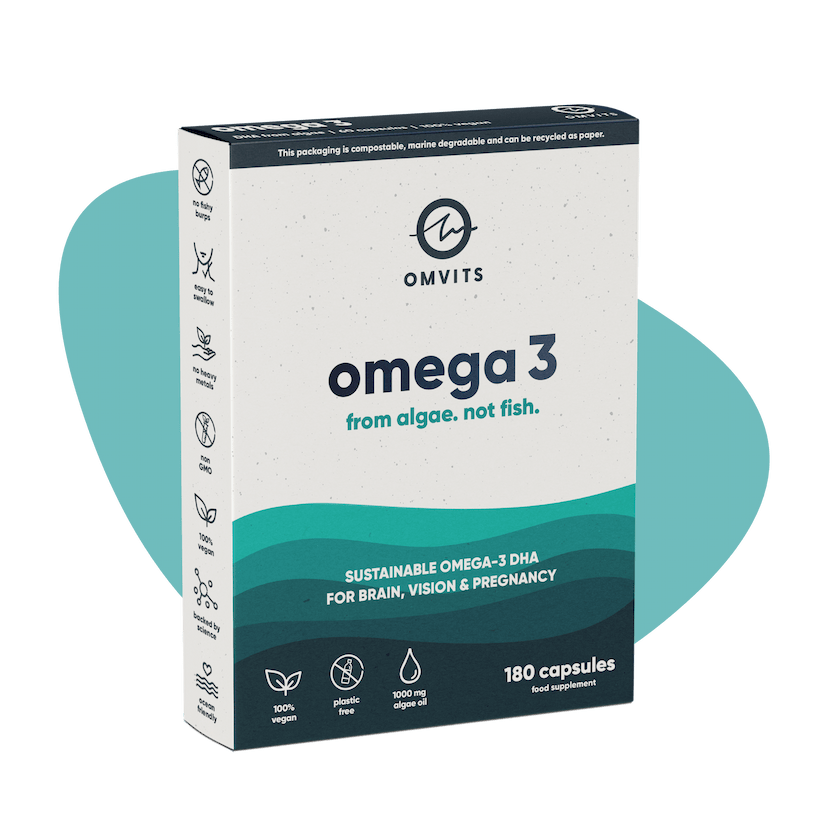
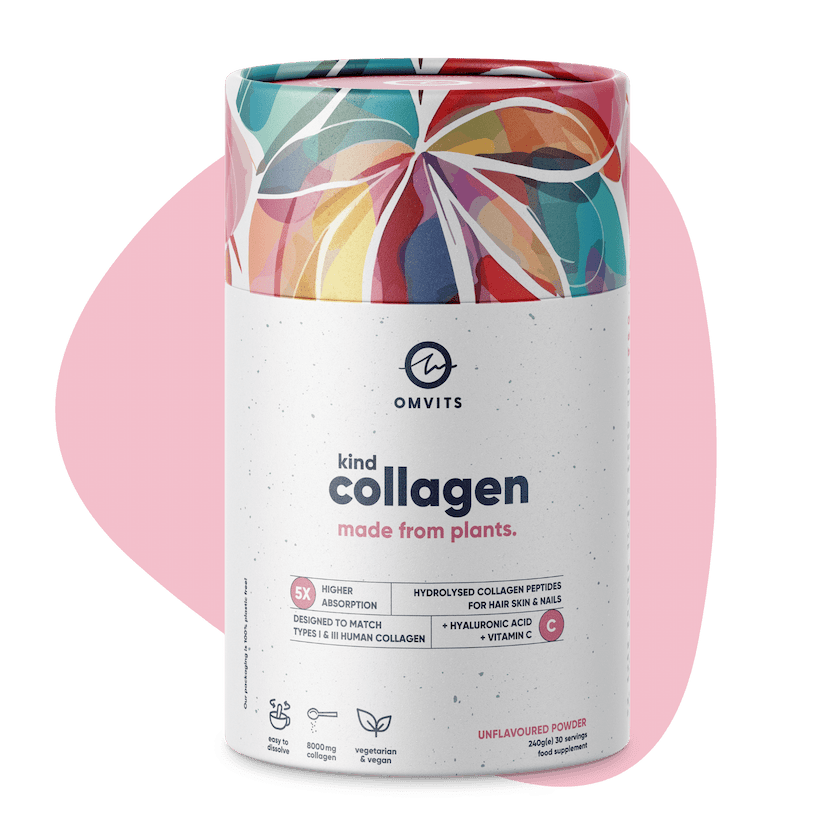
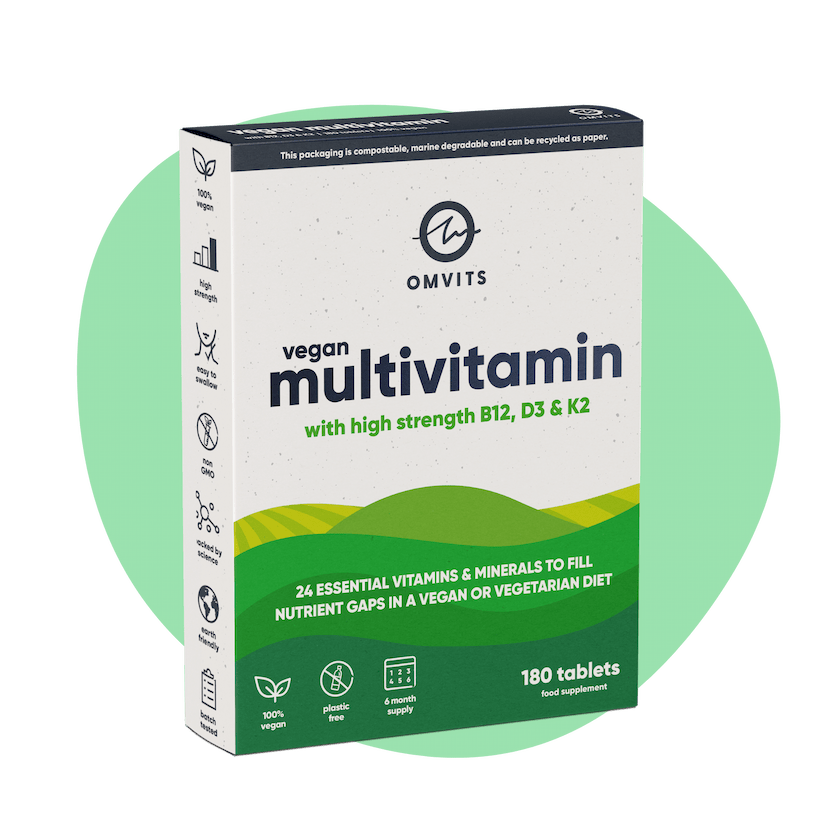
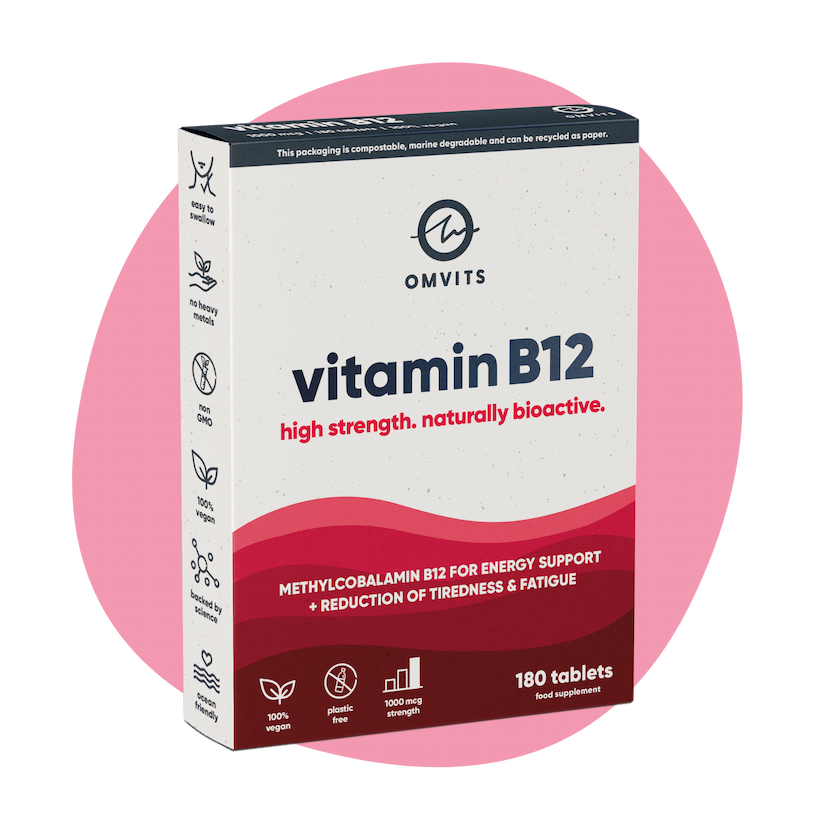
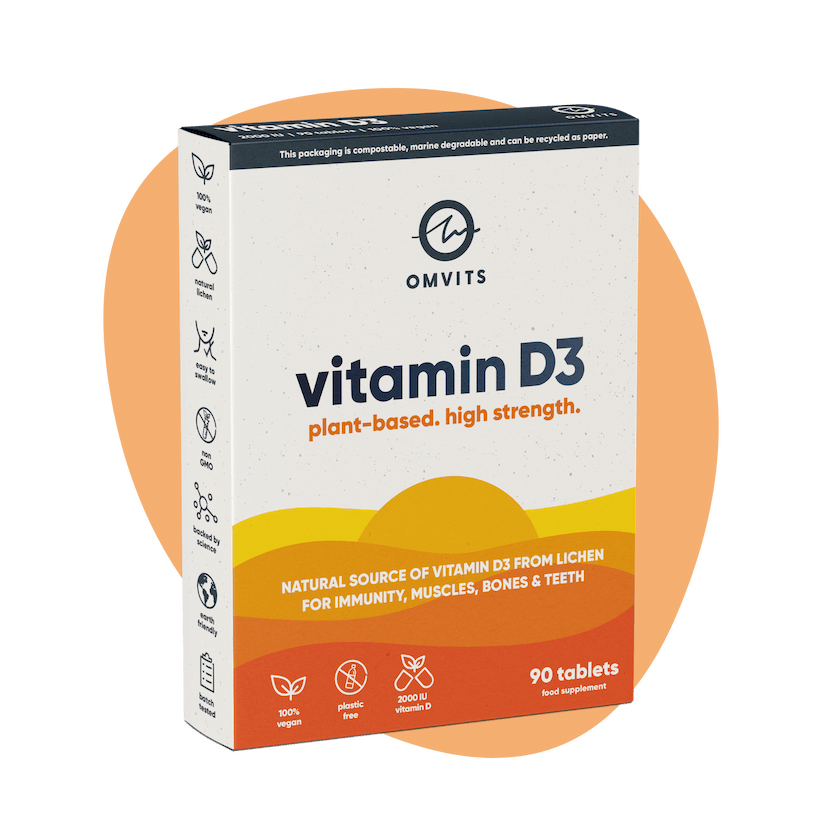


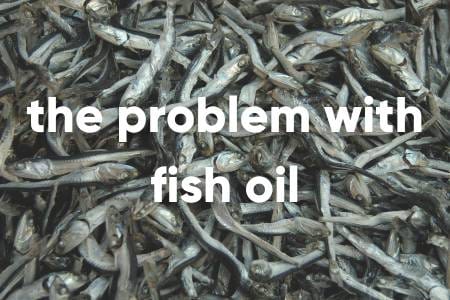
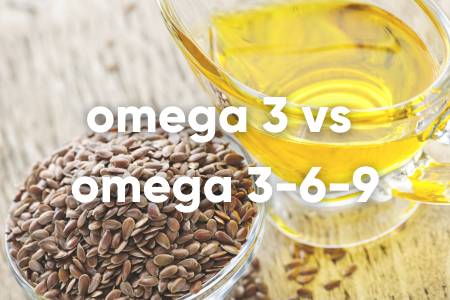






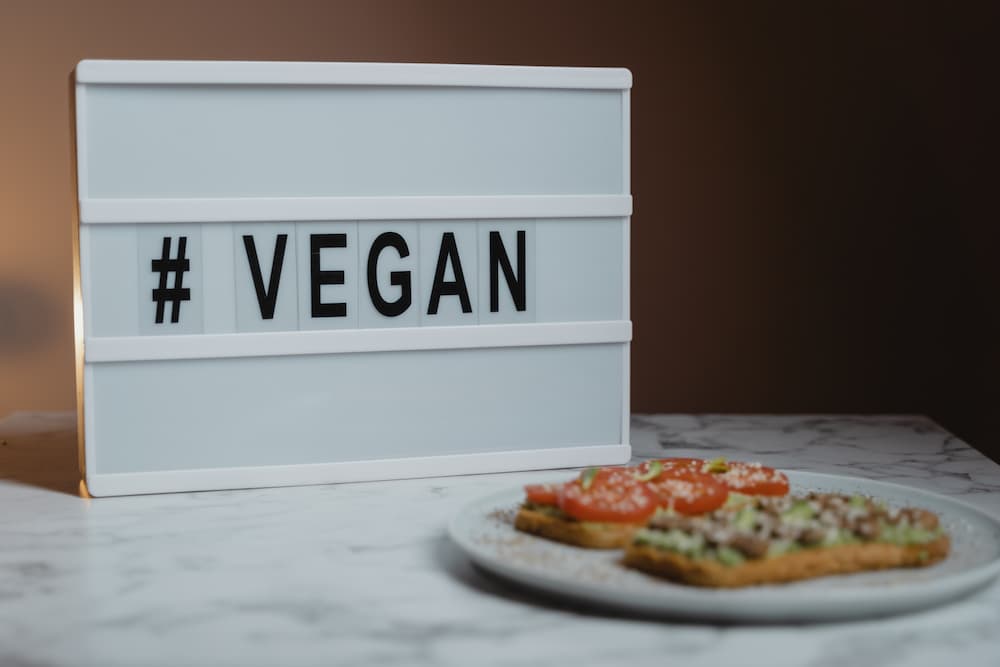

Lisa
May 29, 2021
Great article – one last question though, would you say it is possible to overdose on Omega 3 when eating a 100% plant based diet? I have only found articles about ODing with fish oil.
Thank you and have a great day :-)